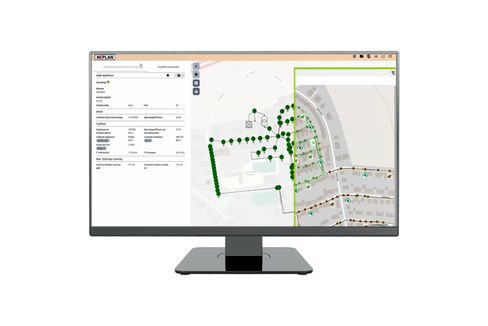Intelligent digitalization of energy supply and increased acceptance
Berlin, April 20, 2021 – PSI Software AG is participating with six partners in the research project IDiNA which is coordinated by the Otto von Guericke University Magdeburg. PSI will develop a validation platform for novel digitization applications in network operations and test it as a cloud-based solution. This will enable research partners to validate their new research results with real data such as historical measured values and network states. PSI intends to develop and implement new Function-as-a-Service (FaaS) business models for PSI's customers and partners.
The research project "Intelligent Digitalization of Energy Supply to Optimize Grid Operations and Increase Acceptance (IDiNA)", launched on March 1, 2021 and funded by the 7th Energy Research Program of the BMWi, will promote the provision of information by end customers with the development of new business models. This is of great importance for the digitalization of the energy system and thus of the power supply as a critical infrastructure. For the first time, IDiNA focuses on the concrete value of information, which is based on the creation of benefits in existing and future processes of grid management, energy markets or in a change in consumer behavior of private individuals and companies.
The consortium consists of PSI Software AG, Otto von Guericke University Magdeburg (project coordinator), Brandenburg University of Technology Cottbus-Senftenberg, the research institution OFFIS e. V. as well as Stadtwerke Wunsiedel GmbH, Stadtwerk Hassfurt GmbH and Es-geht! Energiesysteme GmbH. IDiNA is funded under the funding code 03EI4024 in the 7th energy research program of the BMWi with approx. 2.4 million euros.
PSI Group develops its own software products and integrated solutions to optimize the flow of energy and materials for utilities (energy grids, energy trading, public transport) and industry (metals production, automotive, mechanical engineering, logistics). PSI was founded in 1969 and employs more than 2,000 people worldwide.



